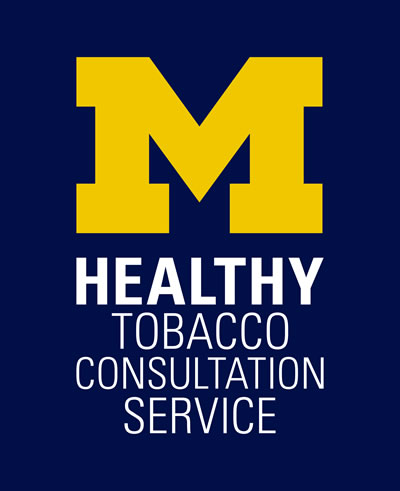Quitting for Good

Smoking cigarettes is the biggest environmental health hazard facing the world today. Quitting smoking is the best thing you can do for your health, whether you're facing a cancer diagnosis or not.
Smoking is more than a bad habit; it is an addiction. Nicotine, a chemical in tobacco products, is a highly addictive drug that also gives smokers fast and temporary feelings of stress relief and relaxation. Your brain responds and wants more.
Nicotine doesn’t cause cancer -- that's due to other chemicals in cigarettes. But nicotine makes you want to smoke again.
For some cancers, quitting smoking is a major factor in keeping cancer from coming back after treatment. Anyone in treatment reaps the benefits of quitting.
How can you break the addiction?
It takes more than willpower to quit. Medications to quit smoking double your chances to quit successfully.
If you're seeking support to quit smoking, the University of Michigan's Tobacco Consultation Services can help.
Inpatient Services
A tobacco treatment specialist provides a brief intervention for patients who are in the hospital Patients discuss their tobacco use and the specialist provides options to quit, including nicotine replacement therapy to help manage withdrawal symptoms while the patient is hospitalized.
Outpatient Services
Quit tobacco programs: This six-week program covers preparing to quit, how quitting affects your body, tobacco treatment medications, setting a quit date, how to live free of tobacco and preventing relapse. The program is available to patients before surgery or anytime you want to quit.
Post-program support: Tobacco Consultation staff will follow up by phone for 6 months following completion of a program.
Quit tobacco support group: Adults 50 or older who have quit or are thinking about quitting meet twice a month at the Turner Senior Resource Center, 2401 Plymouth Rd. Suite C, Ann Arbor.
Try Quitting with Us
Try quitting for a day to celebrate the Great American Smokeout on Thursday, Nov. 17, 2016. Tobacco Consultation Services will distribute quit kits to participants, including a worry stone and candy to help stop cravings.
Or, quit any day to reduce your cancer risk.
Over time, without cigarettes, cravings become less severe as your brain receptors go back to normal. Withdrawal symptoms generally peak three to five days after quitting, so stick with it.
Read the Fall, 2016 issue of Thrive
Learn more / get help to quit smoking:
U-M’s Tobacco Consultation Services
Read our PDF on How to Quit Using Tobacco
